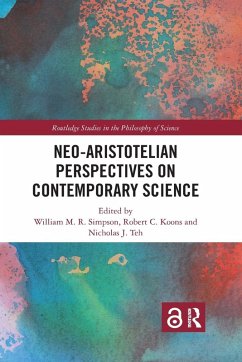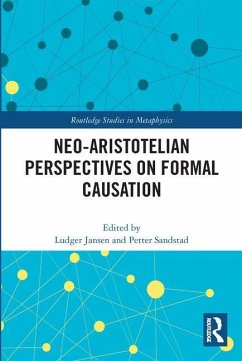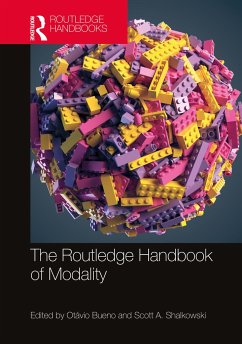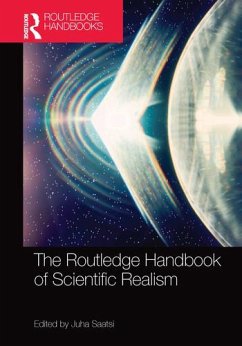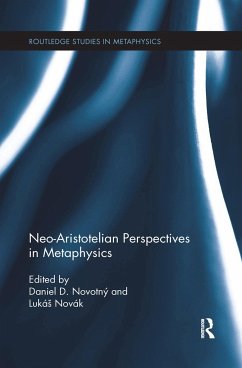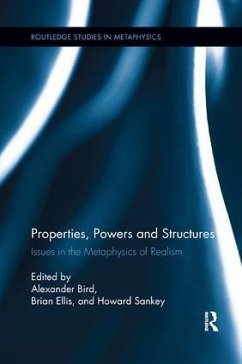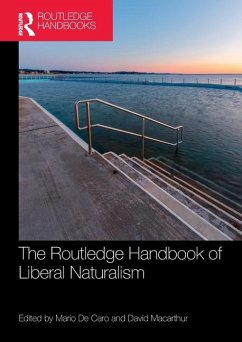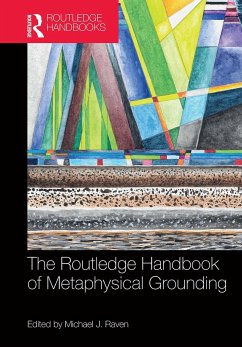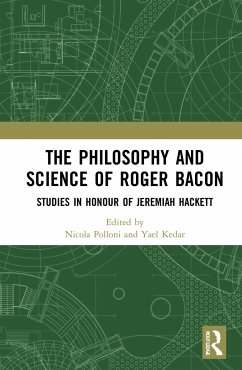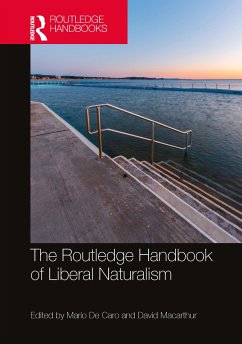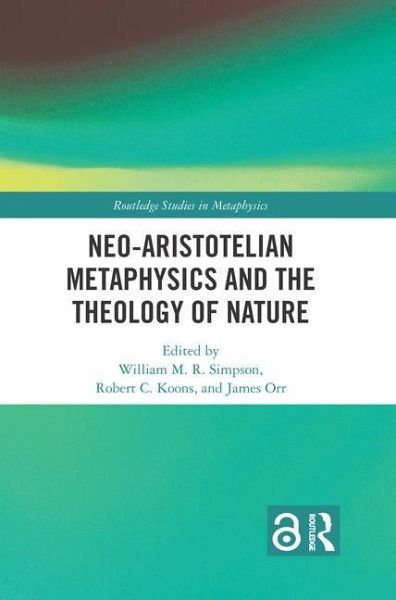
Neo-Aristotelian Metaphysics and the Theology of Nature
Versandkostenfrei!
Versandfertig in 6-10 Tagen
45,99 €
inkl. MwSt.

PAYBACK Punkte
23 °P sammeln!
This book explores the relationship between a scientifically updated Aristotelian philosophy of nature and a scientifically engaged theology of nature. It features original contributions by some of the best scholars engaging with Aristotelianism in contemporary metaphysics, philosophy of science, and philosophical theology.Despite the growing interest in Aristotelian approaches to contemporary philosophy of science, few metaphysicians have engaged directly with the question of how a neo-Aristotelian metaphysics of nature might change the landscape for theological discussion concerning theology...
This book explores the relationship between a scientifically updated Aristotelian philosophy of nature and a scientifically engaged theology of nature. It features original contributions by some of the best scholars engaging with Aristotelianism in contemporary metaphysics, philosophy of science, and philosophical theology.
Despite the growing interest in Aristotelian approaches to contemporary philosophy of science, few metaphysicians have engaged directly with the question of how a neo-Aristotelian metaphysics of nature might change the landscape for theological discussion concerning theology and naturalism, the place of human beings within nature, or the problem of divine causality. The chapters in this volume are collected into three thematic sections: Naturalism and Nature, Mind and Nature, and God and Nature. By pushing the current boundaries of neo-Aristotelian metaphysics to recover the traditional notion of substantial forms in physics, reframe the principle of proportionality in biology, and restore the hierarchy of being familiar to ancient philosophy, this book advances a metaphysically unified framework that accommodates both scientific and theological knowledge, enriching the interaction between science, philosophy and theology.
Neo-Aristotelian Metaphysics and the Theology of Nature will be of interest to scholars and advanced students working in metaphysics, philosophy of science, natural theology, philosophical theology, and analytic theology.
Chapters 1, 2, and 7 of this book are freely available as downloadable Open Access PDFs at http://www.taylorfrancis.com under a Creative Commons Attribution-Non Commercial-No Derivatives (CC-BY-NC-ND) 4.0 license.
Despite the growing interest in Aristotelian approaches to contemporary philosophy of science, few metaphysicians have engaged directly with the question of how a neo-Aristotelian metaphysics of nature might change the landscape for theological discussion concerning theology and naturalism, the place of human beings within nature, or the problem of divine causality. The chapters in this volume are collected into three thematic sections: Naturalism and Nature, Mind and Nature, and God and Nature. By pushing the current boundaries of neo-Aristotelian metaphysics to recover the traditional notion of substantial forms in physics, reframe the principle of proportionality in biology, and restore the hierarchy of being familiar to ancient philosophy, this book advances a metaphysically unified framework that accommodates both scientific and theological knowledge, enriching the interaction between science, philosophy and theology.
Neo-Aristotelian Metaphysics and the Theology of Nature will be of interest to scholars and advanced students working in metaphysics, philosophy of science, natural theology, philosophical theology, and analytic theology.
Chapters 1, 2, and 7 of this book are freely available as downloadable Open Access PDFs at http://www.taylorfrancis.com under a Creative Commons Attribution-Non Commercial-No Derivatives (CC-BY-NC-ND) 4.0 license.





